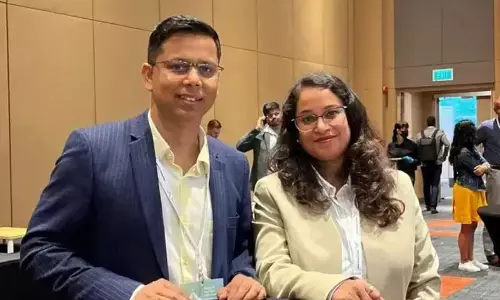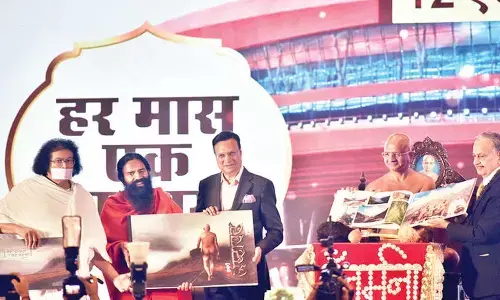How to choose an interesting career

Be it school days, college days or working for your own company or others, you have to think through this and list out the areas where you\'re not finding the joy.

Be it school days, college days or working for your own company or others, you have to think through this and list out the areas where you're not finding the joy.
Pressure always is de-motivating and disappointing; whereas pleasure brings you joy, happiness and keeps motivating you all the time. Never work in an area which you're not interested in.
Do not take up an assignment which you're not interested in just because you're a fresher. It's a temporary solution only; again you'll come back to the crossroads and look for alternates.
Better do an effective SWOT analysis and identify your area of interest instead of choosing whatever comes to you. Internships are the best opportunity to test your interests and choose the career of your choice.
You need not limit yourself; you can intern at different organizations if you have the zeal and if you can manage your time well.
I read your previous article about Internships; could you please guide me on how to get an internship. Is there any workshop to get more clarity about it? -Keerthi, Guntur
Keerthi, good to see your interest in taking up an internship programme. Passion4Career.com conducts free workshops at Madhapur during weekends on different topics viz. setting career roadmap,
identifying opportunities and employer, making a resume, interview preparation, having multiple career options, etc. You just need to send your CV to [email protected], so that you get confirmation to attend the workshop. In this workshop, you can take clarity not only on Internships but also on other areas listed above from career counselling experts.
Sir, I've completed engineering. I would like to know the difference between AMCAT and Elitmus. Which is better for B.Tech graudates? - Navya, Nalgonda
(Aspiring Minds Computer Adaptive Test) AMCAT tests you not only on aptitude, but also reasoning and technical skills. It's a statistical assessment platform which provides the skill measurement for each student.
It's a computer based test to assess English language, quantitative and logical ability, and also claims to perform advanced skill assessment for specific roles in industries- IT, mechanical, finance, semi-conductor, etc.
The test is conducted in two modules - a compulsory module and an optional module. In the compulsory module, it claims to test aptitude and personality skills, which includes English comprehension, quantitative ability, reasoning and logical ability. In the optional module, it tests job skills as per the job prospective of different industries.
Based on this AMCAT score, the companies who are in collaboration with AMCAT may hire applicants. Elitmus formed by former employees of Infosys in 2005 and many IT companies such as Accenture, Collabera, McAfee, IBM, CGI conduct pH test to recruit fresh candidates. AMCAT tests are way easier.
Elitmus tests are pretty difficult and they have negative marking too. Through Elitmus, apart from service companies many product companies like Novell, McAfee, Adobe etc and many good startups like khosla labs and webyog, etc also hire. It's not about the test, but the result you get that matters. However, if you want to increase employment chances, you can go for both the tests.
Sir, I've sent my CV to various organizations but was of no use. Could you please guide me as to what's the best way to get employer's attention?-Mahitha, Ameerpet
Mahitha, sending CV is an easier job. Lot of people get frustrated if there is no reply to it from the recruiter. Though you are a right fit for the job, you may not receive any call due to several reasons.
So it's always better to check your application status with the employer. Many job aspirants send their CV through e-mail with vague subject lines: "Pl find attachment"; "Attached my resume"; "Application for the job posted"; "Resume"; "CV". Those who are seeking job after college,
these applicants do not mention anything in the subject line as they are not aware on what to write in the subject line. Because of this, you can't attract any recruiter/HR, and thereby your CV just remains in their inbox. Follow these simple tips to impress and get interview calls:
- Read the job specification clearly before you apply for any job.
- Apply only when you are convinced and feel you are right for that job.
- Also send your CV to technical/hiring manager instead of just sending it to the HR.
- Follow employer guidelines as part of their application procedure. Sometimes they may ask you to fill their own forms of ERP/standalone portals.
- Do not use your official e-mail for sending CV to another company. IT Administration always observes your incoming and outgoing mails.
- If you write everything in your CV, then there would be less to demonstrate during personal/face to face interview.
- Ensure that your CV should not cross more than two pages, because recruiters do not spend time to read each and every point.
- Do not forget to check your contact details.
- Use proper subject line which is apt to their requirement, use reference number, if they provide so.
- Write up a neat covering letter so as to impress the recruiter by explaining your abilities, skills and experience.
- In order to share more about you with prospective employer, use social media viz. LinkedIn, Facebook, Twitter, Google+, YouTube, Blog and Quora.
- But before you share your social media links, check your profile and posting/comments carefully. They may not call you if there's any controversial, misleading, or awkward information on your wall.
- Keep observing the status of job vacancy and follow up with them regularly.
- Always remember, every employer looks for a problem solving person.
What are the career opportunities for Legal Process Outsourcing (LPO) in India? Do you suggest I go for it? - Anish, Hyderabad
Through Legal Process Outsourcing (LPO), law professionals can help their clients maintain profitability and reduce risk by standardising the legal work in a project-oriented manner.
The LPO has emerged as the new-age career option for many. Working in a legal outsourcing company is an exposure to a world class culture that introduces you to an unmatched opportunity of working with global clients and learning best international practices.
LPO is still nascent in India and going through the growth phase. The early movers have an opportunity to grow with the industry. The Government of India is also considering opening up top foreign law firm which will create many more opportunities. LPO industry today offers many designations depending on the nature of work involved.
Eg: Legal Executive, Legal Assistant, Associate Attorney and Legal Associate at the entry level. Senior Legal Executive, Senior Legal Associate, Assistant Team Lead and Team Lead after 2 years of experience and Assistant Manager, Manager, Assistant Project Manager,
Project Manager, and Vice President after 3-7 years of LPO experience. LPOs have been providing support across a wide array of services that range from administrative work (contract abstraction, patent proofreading, and litigation coding) to higher complexity services (eDiscovery analytics, litigation readiness assessments, collections, expert witness services, patent drafting, patent analytics services, contract negotiations, and obligation management).
In which year CLAT was introduced? What was the previous method of admission into law schools?- Havila, Uppal
CLAT was introduced in the year 2008. Before that, Indian Law Colleges conducted their own entrance examinations. The law students had to take each of these exams separately in order to secure a position in the respective colleges. Moreover there was always a fear of missing out the entrance tests for one or more colleges.
One aspirant filed a PIL against the Union of India and various NLUs (National Law University) in the year 2008. The PIL filed in the Supreme Court of India gained motion when the Chief Justice of India directed the Government of India (Ministry of Human Resources Development) and UGC (University Grants Commission) to consult with the NLUs to formulate a common law test.
It was the result of the directions, that finally after such meetings between the NLUs and the Government of India, on November 23, 2007; a Memorandum of Understanding (MoU) was signed by the Vice Chancellors of the seven NLUs to conduct a Common Law Admission Test, which is CLAT. This is how CLAT has come into the place for admissions into law schools.
By:kamal pabba




















